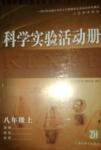题目内容
【题目】Mr.White, who comes from ____ European country, has fallen into_____habit of attending ____ church on Sundays.
A.an; /; the B.a; a; a
C.an; the; / D.a; the; /
【答案】D
【解析】
试题分析:考查冠词用法。句意:怀特先生,来自于一个欧洲国家,已经养成了在星期天去参加教堂的习惯。此句中European country可知在此指其中的某一个,故用不定冠词a修饰,属于泛指表示一个……;of短语修饰habit,可知此处是特指这个习惯,故用定冠词the;attend/go church固定用法,church前零冠词,故选D。

练习册系列答案
 科学实验活动册系列答案
科学实验活动册系列答案
相关题目